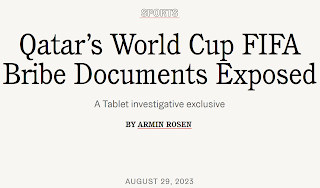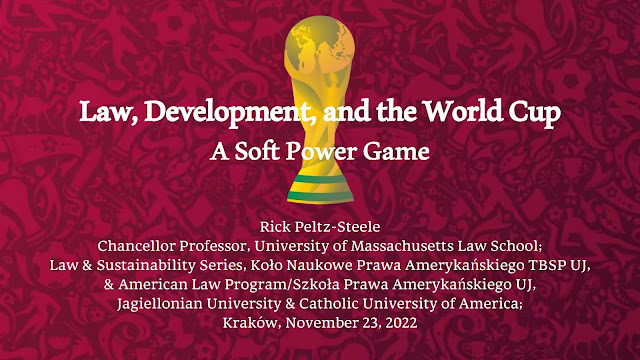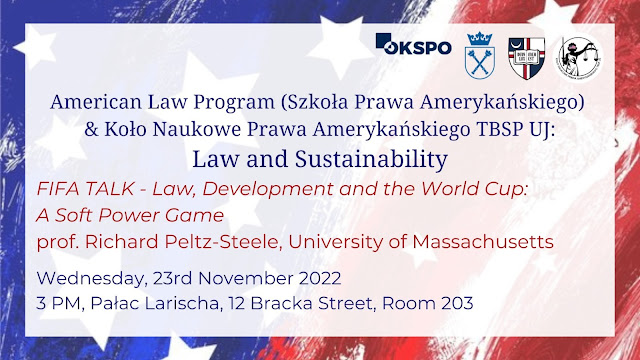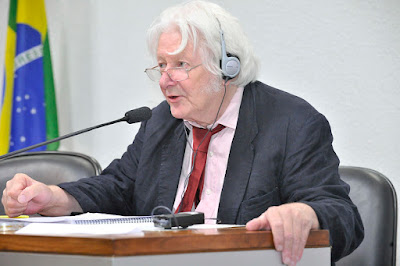This will be my last weekly report for a while. I've tried to make it extra savory. My law school cut summer compensation, so my
lemonade from lemons will be much less
screen time in the next three months. These eight "
Reports from Quarantine" / "
Reports from a Social Distance" have been a lot of fun to write, and I'm grateful for the positive feedback you've sent, dear reader. Nevertheless, it feels like work anytime a laptop is staring back at you.
Though still experiencing a record-cold spring, the temperature here is at last topping 60°F (15.5°C) as many days as not. My
sprained ankle seems healed, thanks to my Instagram
medical team, so I'm looking forward to more time out of the house. We're
reopening in Rhode Island, but there's not yet any timeline for phase 2, much less phase 3. As I
wrote yesterday, people's patience is wearing thin even here in staid New England. Here's hoping that falling
infection numbers bear out our anxious economic plan.
This has been my week 8 since coming
home from Africa, and week 8 at home.
Literally,
at home.
What I'm Reading
Mary Sidhwani, How to Find the True Self Within: Secrets of Relieving Stress and Anxiety (2019). I'm not the self-help sort. But my aunt wrote this book. I can't imagine a more fitting title to kick off my time away from work. I'm only as far as the introduction, and I'm keeping an open mind.
Audio chapters are available also.
Dr. Sidhwani is the compassionate soul behind the
Women's Therapeutic Health Center, based in Ellicott City, Maryland.
 John Maynard, The Aboriginal Soccer Tribe (2019).
John Maynard, The Aboriginal Soccer Tribe (2019). This unusual nonfiction selection was a gift—name drop ahead
🤭—from
Bonita Mersiades, whom I met last year at
Play the Game, and of whom I became an instant admirer. Mersiades is known in world sport circles as "the Australian whistleblower" for exposing FIFA corruption in soliciting nations' World Cup bids years before the 2015
indictments made whistleblowing fashionable. She suffered enormously for the perceived betrayal, persecuted both professionally and personally. Watch her
talk about it at Play the Game, or
read my account of the session. A powerful personality already schooled in fighting the establishment as an executive in women's sport, Mersiades was
not so easily deterred. She wrote her own book, aptly titled
Whatever It Takes: The Inside Story of the FIFA Way (2018); started her own boutique publishing house,
Fair Play; and became a
renowned commentator on the global business of football.

Knowing my interest in comparatism and sport and society, including
research on Australian indigenous media, Mersiades gifted me the 2019 Maynard release.
John Maynard hails from a Worimi Aboriginal community on coastal New South Wales. He is a professor of indigenous history at the University of Newcastle in Callaghan. Maynard's cultural-comparative work has set Aboriginal politics alongside African American and Native American policy problems. He's also an avid football fan, and this book is a definitive biography of soccer and Aboriginal society. The
2019 book from Fair Play is actually a revised update of an out-of-print
2012 original. If you're a football fan, or you want to buy a gift for one, check out
Fair Play's many other titles, too. They include histories of
Aston Villa,
Liverpool, and
Everton, as well as other socio-cultural studies of
Asia and
Brazil.
The 12 Minor Prophets. With our
church, we continue our year-long reading program,
moving on to the intriguing teachings of the
12 minor prophets. As usual, the
BibleProject has fabulous drawing videos, starting with
Hosea,
Joel,
Amos, and
Obadiah. Worship services are continuing online for now, and, as always, all are welcome,
0930 EDT on Sundays.
 What I'm Watching
The English Game (2020).
What I'm Watching
The English Game (2020). This limited series was developed for
Netflix by none other than
Julian Fellowes (
Downton Abbey). Its six episodes are sometimes in a clumsy rush to deliver its upstairs-downstairs social message. Overall, though, this story about the origins of association football (soccer) in late-1870s England makes for a thoroughly rewarding work of television. The series uses football, today the world's game, as a lens through which to view evolving society. The show brings within its scope not only thinning social strata, but emerging women's and labor rights. Football itself was at a pivotal point of development at this time, transitioning from elite pastime to professional play, and introducing a more sophisticated form of passing play, recognized as the norm today, relative to a simple strategy of dribbling attack.
The story of a working-class
mill team making an unprecedented run to steal the FA cup from
elite-establishment collegiate players is very loosely based on real events. Read more at the publication of your choice:
Daily Mail,
Digital Spy,
Esquire,
Express,
i news,
Mirror,
Radio Times,
The Spectator, or
The Telegraph.
Kevin Guthrie is stately as earnest Scottish footballer Fergus Suter; Guthrie was
Abernathy in
Fantastic Beasts.
 The Great (2020).
The Great (2020). I watched the first few episodes of
HBO's
Catherine the Great with the resplendent
Helen Mirren, who received a Golden Globe nomination for the lead role. I've been embarrassed to admit that I found the show too slow and didn't finish it. Now comes
Hulu's
The Great to tell me, it's OK, and to make Catherine's remarkable story so much more delightfully digestible. This dark comedy features
Elle Fanning (
Maleficent's
Princess Aurora and
Dakota Fanning's
sister) as Catherine and
Nicholas Hoult (
X-Men's
Beast, the
big screen's
J.R.R. Tolkien, and the
most recent Watership Down's
Fiver) as Peter III.
At times laugh-out-loud funny and taking great liberties with history—TV Catherine only arrives in Russia for her wedding to the already-emperor, whereas the real Princess Sophia had been brought to court decades earlier—the story is, as the show's title card disclaims, "occasionally true"—as in portraying
Count Orlov, played ably furtively by
Sacha Dhawan (
Doctor Who's latest
Master), as an enlightened co-conspirator in Catherine's inevitable coup. The magnificent sets meant to emulate 18th-century Russian imperial opulence include
one real Italian palace and
several English castles and houses. Be warned, there are brief and highly fictionalized portrayals of violence against animals.
The Politician s1 (2019). This creation from
Glee trio
Ryan Murphy,
Brad Falchuk, and
Ian Brennan was much hyped, but ... weird. I was interested enough to watch it all the way through. But
Glee it is not.
The Politician lives somewhere amid a wicked ménage à trois of
Napolean Dynamite,
My So-Called Life, and
Alex P. Keaton.
Dear Evan Hansen's defining stage star
Ben Platt snagged a Golden Globe nomination for the lead role, and he's terrific. But the story of a socially awkward teen hell-bent on winning his high school presidency as a ticket-punch on his life-road to the White House is more aimless in the execution than the funny trailers suggest. Season two is expected in June; I'll probably skip it.
 Good Eats Reloaded s1-s2 (2018-2020).
Good Eats Reloaded s1-s2 (2018-2020). Devoted fans of the 14-season Food Network phenomenon that was
Good Eats (1999-2012), we went twice to see cinematographer-turned-food-guru
Alton Brown share his scientific approach to the culinary art
on stage, in 2014 and 2016. At the latter show, Brown caused an eruption of audience elation upon a cryptic clue that
Good Eats might be coming back. It has, and season 15, retitled
Good Eats: The Return, is now free to view in 13 episodes at the
Food Network online. In the interim, Brown made two seasons of
Good Eats Reloaded, the second coming out weekly now from
the Cooking Channel, available there and on other platforms. At first I did not want to watch
Reloaded, because they looked like just rebroadcasts of the old show. I was wrong; they're much more.
Hosted by Brown,
Good Eats Reloaded is an often hilarious, sometimes
MST3K-like look back at
Good Eats highlights with plenty of new content. Contemporary Brown mercilessly mocks his younger self, often breaking away to tell us, for example, how he cooks a burger
now, with decades' more experience, or that he no longer uses rolling pin rings because, what seemed like a good idea at the time, they broke soon after the show was filmed. Sometimes there are all new recipes; he cuts out early from s1e01
Steak Your Claim: The Reload to show us how to make my favorite Korean comfort food,
bibimbap. But, I say, leave out the fish sauce
😝 for the authentic urban-Seoul variant. Speaking of eats ....
 What I'm Eating
Lasagna.
What I'm Eating
Lasagna. My wife made her incomparable vegetable lasagna (pictured before the oven) for Mother's Day. Get off my case. I made breakfast. She likes to cook. It's her escape. Heaven knows she deserves to escape.
 Antoni's baked turkey mac'n'cheese.
Antoni's baked turkey mac'n'cheese. Furthermore for Mother's Day, we had a family Zoom on my wife's side, wherein everyone made mac'n'cheese comfort food, feat. ground turkey, from
Antoni's cookbook,
Antoni in the Kitchen. (That was just one of three Mother's Day Zoom calls.) The product was tasty, but heavy.
Crepe cake. Another self-sacrifice
😉 in the #SaveOurRestaurants campaign, we went back to
neighbor-owned Crepelicious for its signature, 14-layer,
green-tea crepe cake. Speaking of heavy...
I'll lose weight after lockdown. Promise.
What I'm Drinking
 Mardi Gras King Cake.
Mardi Gras King Cake. My last order from
Community Coffee brought Mardi Gras King Cake to my door. It tastes almost sweet on its own, flavored as it is with cinnamon and vanilla. It recalls my wife's
king cake from March and reminds us of our beloved New Orleans, an especially welcome nostalgia since the cancellation of this summer's
AALL conference there.
Koloa Estate. We took an interlude from Community to visit the far side of the continent with medium-roast Koloa Estate from
Kauai Coffee. Kauai brands often get a bad rap because they're not 100% Hawaiian grown. You're forgiven if the package led you to think otherwise. Still, if you don't overpay, it's a solid coffee, for a blend, with some of that nutty flavor that characterizes beans grown in Pacific Rim soil.
 Sharish Blue Magic Gin.
Sharish Blue Magic Gin. I brought this gin back from Lisbon. Its name is the Arabic name of its home town, Monsaraz, in the southeastern Alentejo region of Portugal, and the unusual whale-fin bottle shape pays homage to the region's easterly hills. Sharish is made by António Cuco, who, according to
various accounts, was an unemployed teacher when he started experimenting with distillation in his home pressure cooker in 2013, set to head a multimillion-euro operation in a few short years.
Sharish's defining feature is its brilliant blue color, more indigo in brighter light and undiluted density, and its "magic" is that this color turns to pink in the presence of tonic. I experimented, and it was fun. The blue color comes from the flower of the blue pea blossom,
clitoria ternatea, in fact named for its, uh, feminine shape. Tonic really does change the color, not just dilute it, shifting the acidity balance to alkaline, like when we played with pH paper in grade-school science class. When the novelty wears off, a gin with a rewarding and summery flavor remains. Sharish leads with its fruits, raspberry and strawberry, and they're backed up by a palette of Alentejo-grown botanicals: angelica, cardamom, cinnamon, ginger, and licorice, besides the blue pea and juniper. Sharish goes down so pleasantly, even straight, that its 40% ABV sneaks up on you.
Clitoria ternatea is not a European native, and this is not the only gin that uses it. The flower goes by many names around the world, including butterfly pea and Asian pigeonwings. It's an Asian native and has long been known in Asian cuisine, notably Thai blue rice. The flowers give Empress 1908 gin an indigo hue and a savour overlapping with Sharish. Made in British Columbia and shipped worldwide, Empress is easier to find in North America, though I think a rung below Sharish in finish.
 French 75.
French 75. I wanted to make a special cocktail for my wife for
Mother's Day. The French 75, a champagne-and-gin mix, was the signature
favorite of Count Arnaud Cazenave in 20th-century New Orleans,
according to the John DeMers book,
Arnaud's, that I
wrote about two weeks ago. I used a
Bon Appetit recipe,
a French champagne, and New Amsterdam gin. My French 75 made me feel
like a high-class continental cultural import. I was so carried away
that I briefly joined the neighbor's bichon frisé in looking down
(figuratively) on our lab mix.
 Death by King Cake.
Death by King Cake. I ventured to the "essential" liquor warehouse to bring my wife two new beers to try for Mother's Day. We love whites and sours. Both of these were indulgent treats. Death by King Cake let us end the day the way we started it. From Colorado-based Oskar Brewing, King Cake is a 6.5% ABV white porter brewed with vanilla, cinnamon, nutmeg, cacao nibs, orange peel, and pecans. Oskar promises Death by Coconut coming soon, an Irish-style porter in the same "series."
Key Lime Pie Sour. Of all the food and bev I've tried around the world, I remember vividly my first frozen-key-lime-pie-slice-dipped-in-chocolate-on-a-stick in Key West, Florida. That was the moment I realized that humanity had achieved Roman Empire-level gluttony on a global scale, and that our fall is inevitable, probably coming sooner than later, but that it would be a helluva ride down. This is that in a beer. From New Hampshire-based Smuttynose Brewing Co., there's an adorable seal visage on the back of the can. 6.3% ABV.
It was a Zoom Mother's Day
 Stay thirsty, my friends!
Stay thirsty, my friends!
Eating and Drinking images by RJ Peltz-Steele CC BY-SA 4.0 with no claim to underlying works
Zoom captures by RJ Peltz-Steele CC BY-NC-SA 4.0 with no claim of data protection waiver







































